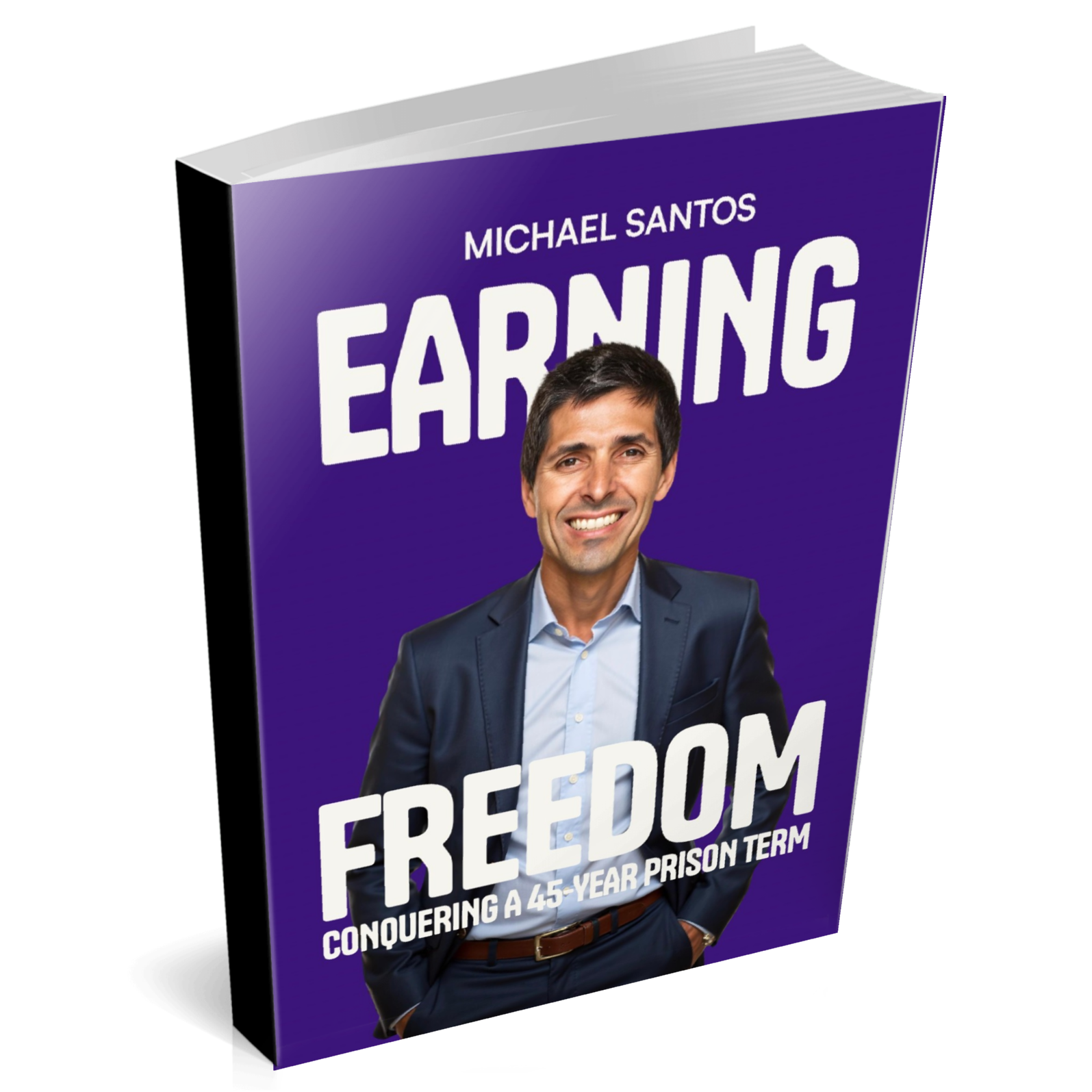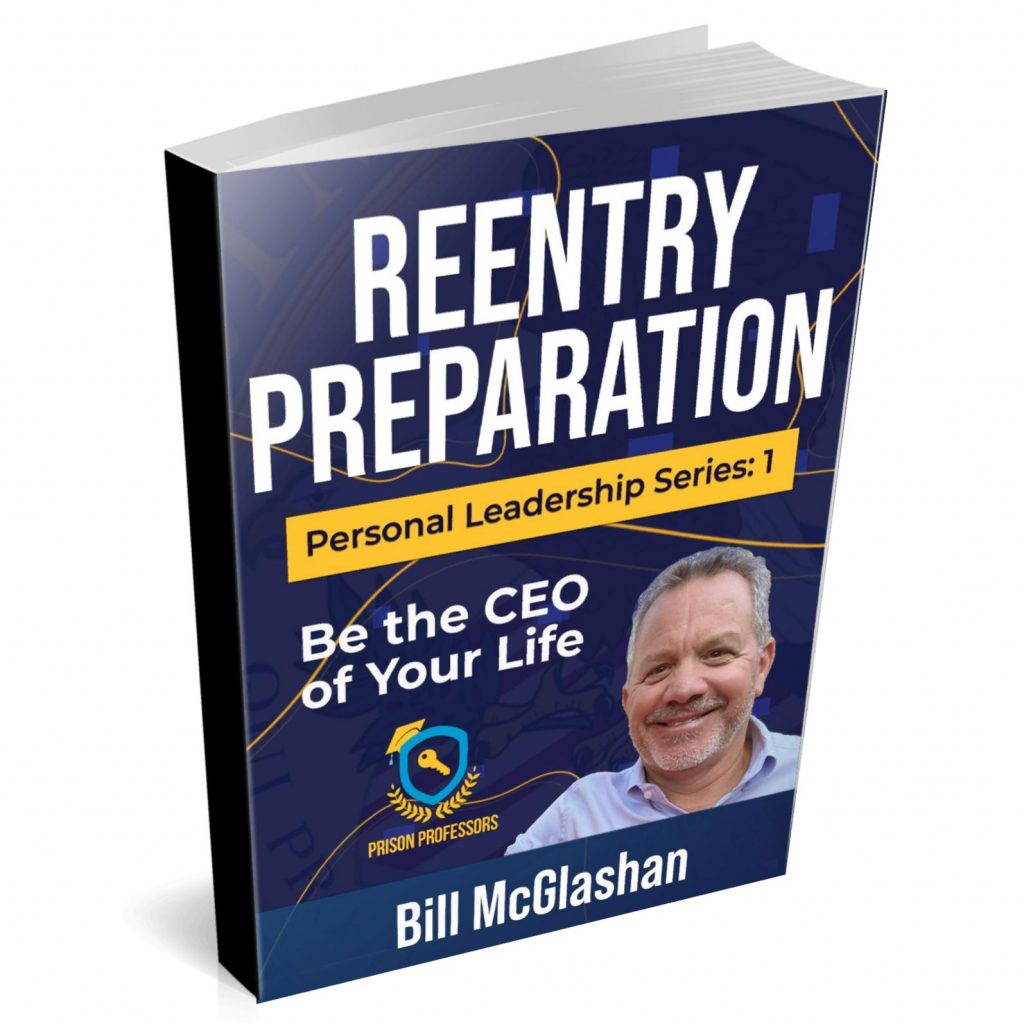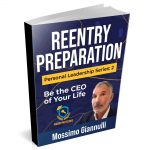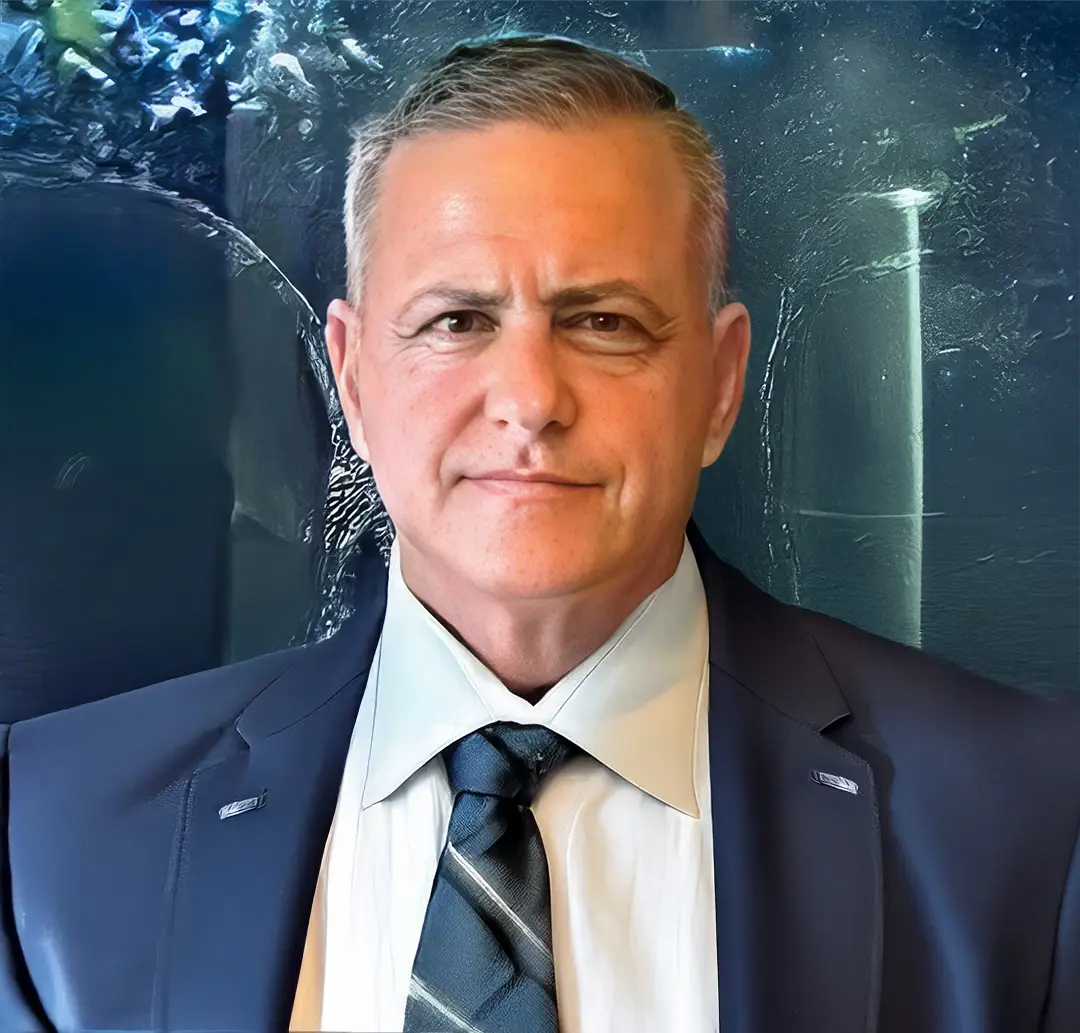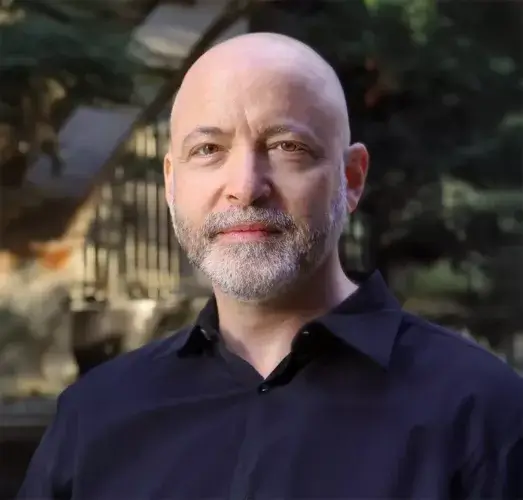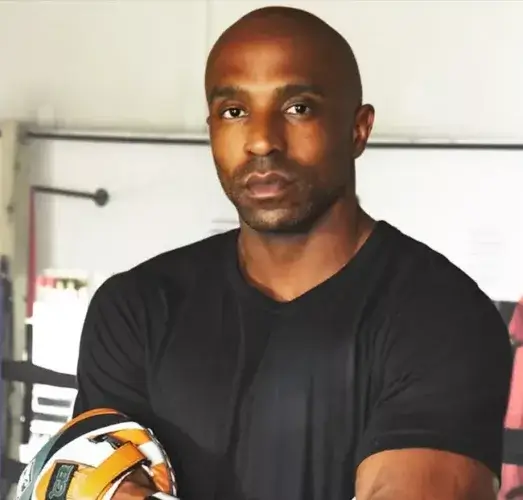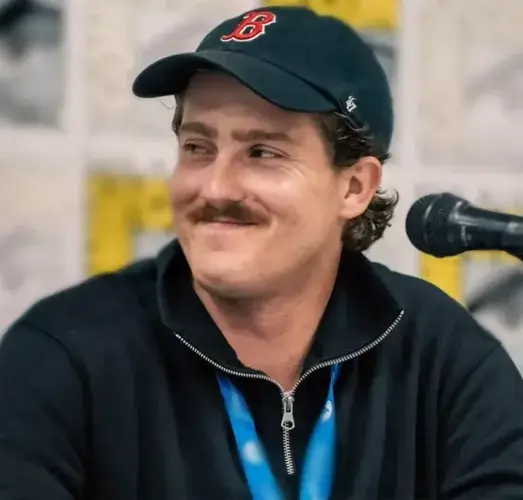About White Collar Advice
Find Your Path to a Better Outcome
I’m Justin Paperny, founder of White Collar Advice, and I know that the criminal justice system can feel overwhelming. You don’t have to face it alone. There’s always a pathway forward. Whether you’re at the beginning of an investigation, preparing for sentencing, or rebuilding your life after confinement, the steps you take now will influence the coming years of your life.
As my partner, Michael Santos, says:
- “It’s never too early and never too late to start preparing for a better outcome.”
But where are you in the journey?
Experience-Based Guidance for Federal Defendants and Families
Take Control: Become the CEO of Your Life
Empower yourself by getting the right information you need, at the right time. Look through the twelve steps above, click the button that is right for you, and you will get guidance that will help you restore confidence.
Remember, while going through this process, you want to live as if you’re the CEO of your life. So think like a CEO: Define your goals, create a plan, and execute with discipline. Whether you’re in the investigation phase, preparing for sentencing, or building a mitigation strategy, you’ll need strategic focus.
You’ll have an attorney whom, we hope, will fight valiantly for the best possible outcome. But that does not absolve you of the responsibility to work, work, work. No one should work harder than you to put the crisis behind you, and to move on to better times.
You may not be able to change the past, but you can always take a methodical approach to work toward something better. Use the same strategy that you’ve used in any other area of your life:
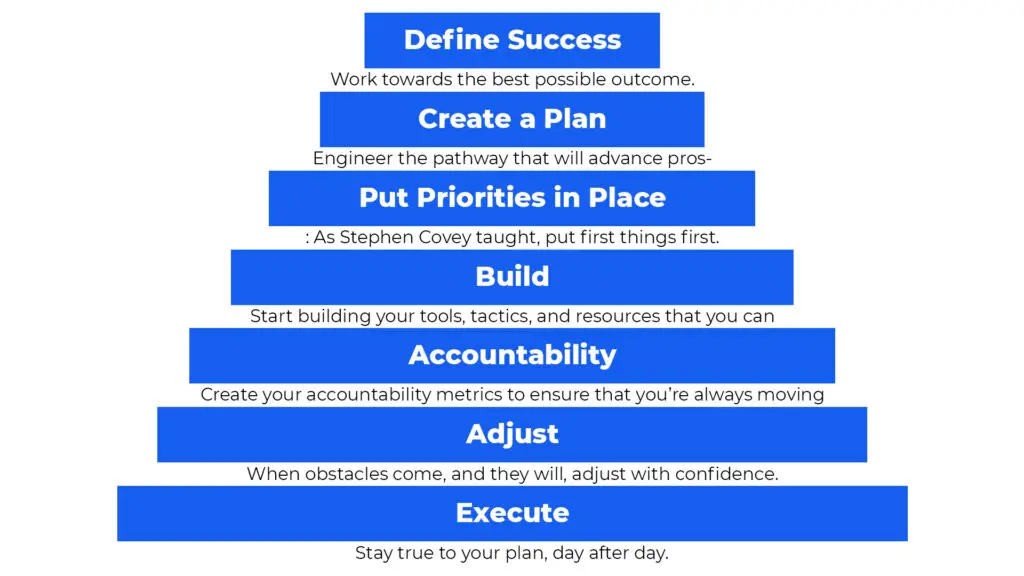
We’ve been where you are, and we’ve walked this path with countless others. You’re not alone, and with the right plan, you’ll find your way through this crisis.
You wonder why we’re so confident in these strategies. It’s because we’ve lived this journey. If you have interest, you can read more about our story and the experiences that drive our program below, in the About Us section.
Schedule Call Now
Weekly Webinar
Why White Collar Advice Exists
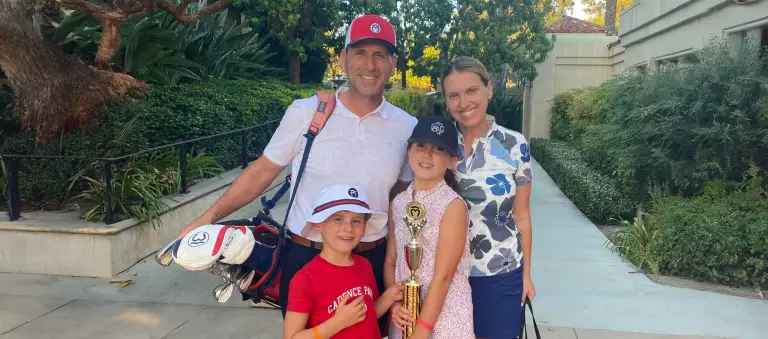
If you’re in a crisis, and looking for a guide, it’s reasonable that you’d want to know who is offering the guidance. As I said at the start of this page, my name is Justin Paperny.
I understand firsthand how overwhelming it can be to face a criminal charge. When the FBI showed up at my home on April 28, 2005, more than two years had passed since the original offense. I had worked with hedge funds. During a meeting with clients, a person with whom I was working crossed the line. I knew it, and I didn’t do anything to rectify the wrong.
When I left that meeting, I knew that I had made a mistake. As a licensed financial professional, I had a fiduciary duty to be honest at all times. Or, as the government would say, I either knew or should have known that my colleague had broken the law.
Yet time passed, and after two years, I thought the ordeal had moved into the past.
When the FBI showed up, I knew I was wrong. I felt as if a cold bucket of water had fallen on me. Yet since I’d never gone through a government investigation, I didn’t know what steps to take.
After learning that authorities had targeted me for prosecution, I hired lawyers. I didn’t know how to work most effectively with them. By then, I had deluded myself into believing that I had not done anything wrong.
At the time, I was in self-preservation mode and certainly did not consider the perspectives of prosecutors and judges. My only focus was pretending this nightmare was not happening, which continued when, even after pleading guilty, I gave $16K to a reputation management company that claimed they would suppress or even remove my Department of Justice press releases.
Instead of trying to sweep matters under the rug, I should have been searching for a honest guide who could help me recalibrate and move toward a better outcome.
A good guide could have helped me introspect, and ask better questions:
- What did I do to put myself in this predicament?
- How will stakeholders view me?
- Is there anything I can do to mitigate the problems I created for myself?
- What would be the best possible outcome from this predicament?
- What is my capability of creating a plan that will advance prospects for the best outcome?
- In what ways do my advisors know how to put me on that path?
Instead of introspecting and planning, I lived like the proverbial ostrich with my head buried in the sand for nearly three years. Even after being sentenced to prison, I was not ready to do the work.
I went through numerous attorneys before I found someone I trusted. Too many people, despite best intentions, were telling me what I wanted to hear rather than what I needed to hear. Eventually, after a guilty plea, a judge sentenced me to serve 18 months and the Bureau of Prisons designated me to report to a Federal Prison Camp in the Central Valley .
More Of The Same
On April 7, 2008, three weeks before I would surrender to federal prison, I received an email from my mom. She wrote: “This man, Michael Santos, has been in prison a long time and shares valuable insights about what you can do while serving your sentence in federal prison. I wrote him a thank you letter. You should read his blog postings and find him when you arrive.”
Apparently, he served time in the same prison where I would surrender.
At that time, I didn’t know that Michael Santos had been serving time in federal prison since 1987. During that time, he had earned two university degrees, published numerous books, and wrote extensively about how to work toward best outcomes from prison. He had a lot of experience, and many universities relied upon his work as an authority of the prison system.
Instead of thanking her for the message, I said, “Mom, I am not interested in reading blogs from some dude who is in prison. I’m relying on my attorneys for guidance, and that’s it. No mas.”
In retrospect, he was precisely the person from whom I should’ve been learning. As the Chinese proverb advises:
- “If you want to know the road ahead, ask someone who is walking back.”
In truth, I wasn’t ready to acknowledge my guilt in the crime that led me to my conviction. Without knowing anything about the system, I couldn’t architect an effective plan. I kept making bad decisions.
I could not accept that anyone would send me, Justin Matthew Paperny, from the hills of Encino and USC Baseball, to federal prison. It seemed surreal to me. I kept asking, “How the hell did I get into this mess?”
You may feel similarly.
We don’t want to believe that authorities would ever target us for prosecution. We didn’t set out to hurt anyone. Despite not having bad intentions, opportunities, pressures, self-rationalizations, and denial proved toxic to my moral compass.
A Turning Point
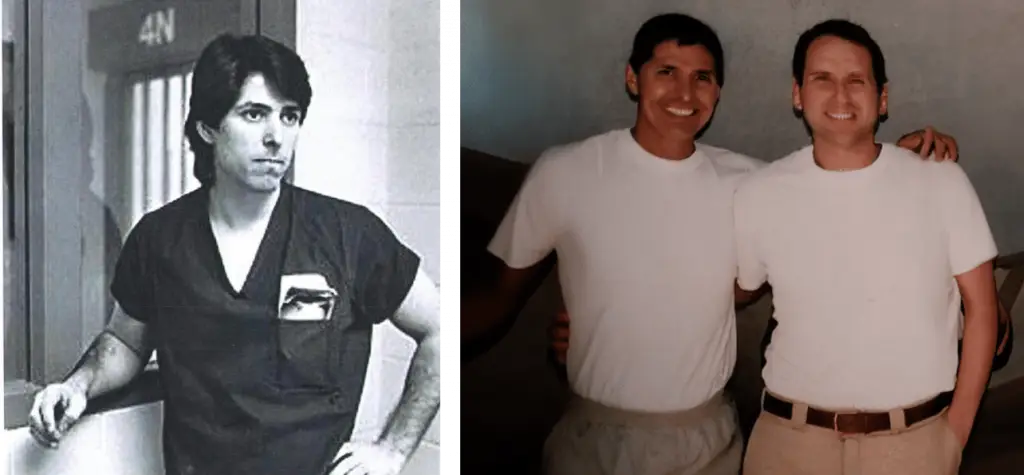
Two days after I surrendered, I met Michael in the library. By then, I knew we were both in Dorm D.
“How you doing, young man?” he asked.
“Well, not great. I just got to prison. Sort of off my game.”
“For how long?” he asked.
“Eighteen months.”
“Well, I will make a deal with you. I will serve every day of that sentence with you.”
Over the next few weeks, we became friends. He had a deliberate routine, which taught me a lot. He’d start his mornings early (like 3 am). He spent time writing, sending the work home to his wife, Carole. Then he’d go outside to run 10-15 miles. He’d write more, teach a class, mentor others. He always went back to his cubicle early for alone time, and he’d be asleep by 7 pm each evening. Then he’d wake to start over and repeat the next day.

The thing was, he never complained. He actually seemed happy, glad to focus on what he could control, rather than on what the system controlled. He’d developed a self-directed work ethic that I admired.
We’d become very good friends, and I’d tell my family and friends about him during visits. One of my friends, Brad Fullmer, had worked to develop his skills as a ball player. He turned down a full scholarship to Stanford when the Montreal Expos drafted him after he graduated from high school. I told Brad about Michael’s work ethic.
“I saw how hard you worked to get to the big leagues. He works 10 times harder than you.”
The story inspired Brad so much that he invested $40K into Michael’s work, helping set the stage for the courses Michael creates and implements in prisons across the country—more on this later.
Working with Michael began to give me confidence that I could recalibrate and build a new chapter of my life once I got out. We began crafting that plan together. Anyone can read more in his book, Earning Freedom: Conquering a 45-Year Prison Term.
I could not learn enough, but there were times Michael had had enough of my questions. He’d say, “J.P., enough with the questions. I’ve got to finish my work.”
I remember him asking, “Do you want to know something that every guy walking around this prison camp has in common?”
I looked at him. “Every guy wants to get out.”
“True,” he acknowledged. “Every guy here would’ve liked to have made better decisions at the outset of his problems. Everyone who faces legal challenges for the first time makes decisions from a position of weakness. They rely upon defense attorneys for the process, but there is much more to a criminal indictment than the judicial process. That’s what defendants don’t understand.”
“You’ve got that right,” I said. “All I cared about was getting out of trouble. But I did not know how, so I made choices that worsened matters. I didn’t even contemplate prison. Later, after I knew that prison was coming, my attorney couldn’t tell me how to prepare because he didn’t know. All he said was that prison would be boring and end at some point.”
“Well, your lawyer was right about the boring part. Look at how many men spend their days in endless fun with T.V., tabletop games, exercise, and waste time reliving the glory days. You are no different. You might not watch T.V. all day or play games, but exercising all day with Andrew is just another way to pass the time. Yet, you think you are different because it is exercise, not T.V. It is the same—whether watching T.V. all day or exercising, you are not preparing to go home. Let me ask you: how much will people pay you to run or do those pull-ups? You talk about wanting a better life and making your mom proud, but on a scale of 1-10, with one being the lowest, what number would you give yourself?”
“One,” I said.
“Own it and prepare for more struggles. You should also prepare to burden your parents’ retirement.”
Finally, it hit me—my “aha” moment.
The next day, my routine changed. Rather than exercise all day, I started writing and documenting my journey in a private journal. I did not just read; I read with a purpose.
At Michael’s urging, I began writing book reports:
- Why did I read the book?
- What did I learn from the book?
- How will the book help me after prison?
Feeling inspired with my new routine, I told Michael I was ready to do more. While walking around that dusty track, he suggested I put my journey online for others to learn from and to hold me accountable. That conversation led to this website, www.WhiteCollarAdvice.com, which we built to serve as a resource for others who were going through the 12 stages of the criminal justice system.
White Collar Advice: A Vision Realized
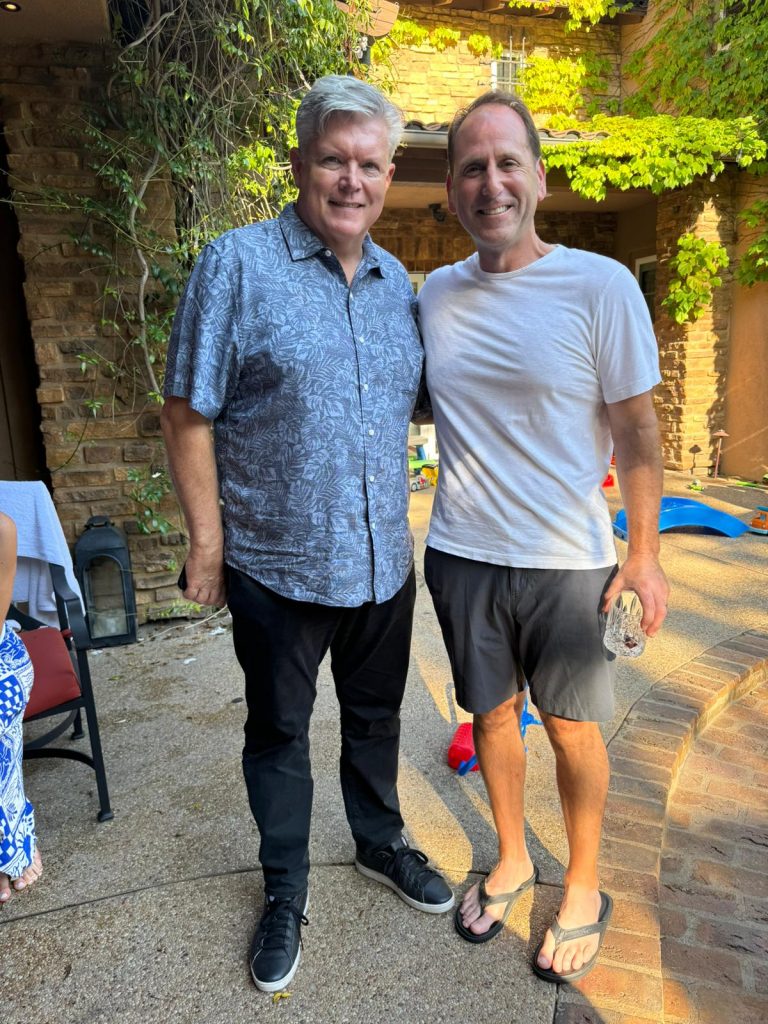
When we started White Collar Advice, our vision was to help people like Dr. Nate Schott. He reached out to us in 2019, wanting the best possible outcome, but needed to know how. He had already read Lessons from Prison and understood the pitfalls of dishonesty. He said, “I want to do everything right, but this is new. I have good lawyers, but I must do more to mitigate. Will your team help? I want to show the judge I’m different from their version of events. I want to make my wife and four children proud.”
Dr. Schott’s dedication paid off—he received 33 months instead of the expected 51-63 months and was home from prison in 10 months. His success was due to his commitment to understanding stakeholders, owning his mistakes, and actively contributing to his community. His story illustrates the impact of hard work and building a verifiable record.
Dr. Schott was fortunate to have had a solid working relationship with his lawyers. That said, most struggle to work well with their lawyer—I heard hundreds of horror stories in federal prison.
Other people I met in prison complained about how their lawyers told them that mitigation strategies were useless, or that they had everything covered.
Former FBI Agent Paul Bertrand told me, “When we show up for a raid or send that target letter, we are in the bottom of the 8th inning,” suggesting that as far as the government is concerned, the game is nearly over.
Continuing The Mission: Practical Preparation, Accountability, and Better Outcomes
Since my release from prison in 2009, I’ve been developing White Collar Advice. In 2013, Michael completed his sentence and began working on macro changes to the system, advocating for changes that would allow people to work toward higher levels of liberty through merit. Through our nonprofit, we distribute books and courses to more than 1 million people in prison. Even the Bureau of Prisons uses our content as a First-Step Act program.
More than 100 people in our community, including Bill McGlashan and Mossimo Giannulli, have worked with Michael to create “Mastermind Courses” that become part of our Preparing For Success After Prison course. Our nonprofit exists to change the law, and White Collar Advice is proud to sponsor its mission.
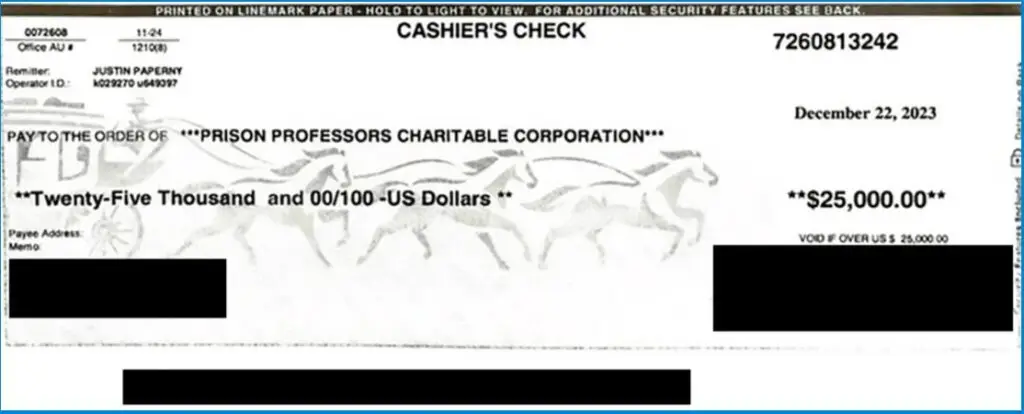
As the above check shows, White Collar Advice and I have been sponsoring the Prison Professors Charitable Corporation and its mission since even before Michael completed his prison term, in 2013. It led to numerous other people sponsoring the mission, including Changpeng Zhao “CZ,” the founder of Binance. Don’t take my word for it. You can read the endorsement that CZ authorized us to use in all the books and courses we distribute.
Meet the White Collar Advice Team
Finding Meaning and Moving Forward
As I make my way toward the end of this long letter, I am optimistic that as you go through the system, you can find meaning in it, as I did. It certainly took me some time, and I regret not starting sooner.
Despite the challenges a person goes through at one stage, opportunities exist to overcome. The key is to assess where you are today, then create a plan for where you’d like to go moving forward.
This strategy helped me recalibrate. I accepted that I had made decisions that led me to prison, but learned to appreciate that I had the power within to move forward.
I don’t profess to know everything about prison or crisis management. That’s why I proudly have a team with different strengths and weaknesses.
As you go through this process, it’s healthy to identify your core values. Our core values include honesty, transparency, authenticity, and never asking you to do what we have not done and documented. Our work is easily verifiable for you or anyone to review and dissect.
I’ve been home from prison for longer than 15 years, and our team is thankful to have had so many people reach out to us. We’ve learned who we can help, and who we can’t help.
We can’t help you if you don’t see the value in hard work. We can’t change the past, but we can sow seeds for a better outcome.
We appreciate you being a member of our community. We hope that White Collar Advice will provide you with resources to help you make better decisions. If you still have questions, participate in our live, interactive webinars. They take place every Monday at 1:00 pm Pacific, 4:00 pm Eastern.
Weekly Webinar
If you want responses to questions now, schedule a call with our team:
Schedule Call Now
If you want responses to questions now, schedule a call with our team:
Whatever you do, do something healthy and productive that gets you closer to your desired outcome!
Respectfully,
Justin Paperny
P.S. If you would like to learn more about our journey, check out our timelines.
